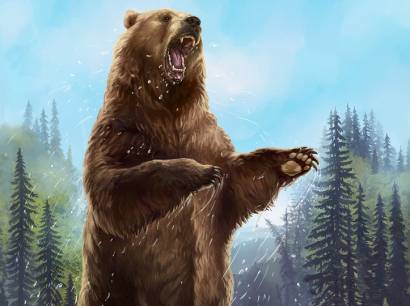This Week's Story
31 men, only one woman, and a new baby map a route across the West!

This Week’s Story relives American history and the Bible through brief inspiring stories presented on mp3 audio recordings and text for reading.
An Epic Trip, part two
“Surely, Captains Clark and Lewis are dead. They left St. Louis over two years ago, in the spring of 1804.”
“No! You’re wrong. The Lewis and Clark Expedition members have returned from the West.Tonight I interview Captain Lewis.”
“I can’t imagine anything of interest they discovered in that godforsaken wilderness.”
Later that evening the reporter was not disappointed as he listened to Captain Lewis.
“Our training and gathering of supplies for the trip was extensive. We would not have returned home alive without it. What we saw was often spectacular. We also endured storms, aggressive animals, accidents, sickness, terrible weariness, bugs, sometimes little food, and months of rain.
“Our permanent group had 33 people, all having valuable skills, except Pomp, Sacajawea’s baby boy. Sacajawea was our only woman. She found edible roots, plants, and berries for us. She was our contact
and interpreter with her people, the Shoshones. We needed to buy horses from them. Hostile Indian tribes usually left us alone, because they saw Sacajawea and Pomp. The warriors were convinced that we couldn’t be a war party with a woman and baby.
“We had men with frontier experience, hunters, interpreters, craftsmen with woodcutting, and soldiers. I served in many capacities, including as doctor.
“Pierre Cruzatte was our fiddler and evening entertainment. The Indian tribes we visited were fascinated with his music. He spoke French and Omaha and was a terrific riverman.
“We established arrangements for trade with at least 24 Indian nations. We were the first American expedition across the Western half of the Americas. Over 4,000 miles we travelled through forests, across plains, over mountains, and up and down rivers.”
“Captain Lewis, what did President Jefferson expect you to accomplish?”
“His expectations were great, but he also spent many hours personally training me in scientific areas. He asked us to keep detailed journals. We were to explore and map a route. We went up the Missouri River, over the Rocky Mountains, and on to the Pacific Ocean via the Columbia River. I remember my joy when I arrived at the headwaters of the great and seemingly endless Missouri River. We also were to study plants, animals, land forms, and establish trade with Indian tribes. We attempted it all.
“Sometimes hunting was extraordinary, when we easily found deer, buffalo, elk, beaver, bear, and wolves. Bear could be ferocious. I remember six of our men discovered a large brown bear lying in the open. Four men fired at almost the same time. All their bullets hit the bear. Two went through the lobes of his lungs. Instantly the bear charged with his mouth open. The two other men shot him. The bear was yet alive and the men couldn’t get their guns reloaded fast enough. Two jumped into the river from a twenty-foot bank. The bear followed them. One hunter, who remained on the shore, shot the bear through the head killing him. Later the men took his skin and fleece and made several gallons of oil.
“One day our journals will be published and you can learn more of the incredible discoveries of the Lewis and Clark Expedition.”
This is Barbara Steiner closing the interview. Please check out www.thisweeksstory.com.
<< previous story] [next story >>
We invite your comments! [click here to comment]
This Week's Story is a non-profit supported by listeners. [click here to make a donation]
 click here to play audio
click here to play audio